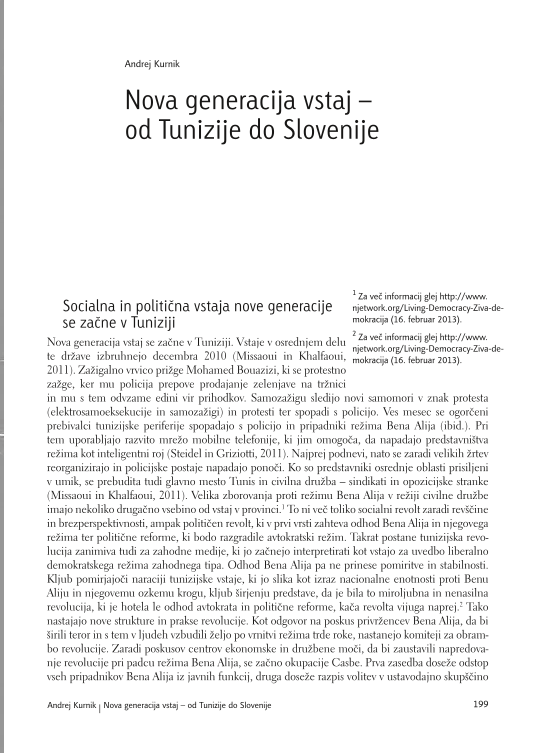The uprising in Tunisia, the occupation of public squares in Spain, the Occupy Wall Street movement, the global uprising on 15 October 2011 and the recent widespread demonstrations in Slovenia can be understood as the new generation of uprisings following the eruption of financial crisis. Those multitudinal expressions of indignation and quests for real democracy are expressions of the irreversible crisis of neoliberalism and representative democracy. From an examination of the defining traits of uprisings from Tunisia to Slovenia, one can define basic theoretical and practical dilemmas in the new ways of doing political encounters. These include the relationship between the social and political dimensions of uprisings, the relationship between heterogeneity and forms of political organization, how resistance against financialization prefigures emerging forms of direct democracy, how emerging movements address the issue of direct democracy and minority rights, and what theoretical practices can prevent the attenuation of the discourse of uprisings and enable the free production of enunciations.




